'Whatever may happen tomorrow, and I’m disposed to it every day’
Albert Shigabutdinov tells why TAIF isn’t afraid to suffer the same fate as Bashneft
The TAIF Group of Companies is one of the largest privately held enterprises of Russia. Petroleum refining and petrochemistry are the foundation of its business that has been headed by Albert Shigabutdinov since 1995, i.e. from the very beginning. For these years, the company increased its revenue more than twentyfold, modernized, and built up the production. The GC was never charmed by expansion and geographical diversification on the grounds that it doesn't invest outside of Tatarstan. This year TAIF attracted the attention even after the story of Bashneft when it was returned to the government: the enterprises fell to Tatarstan's lot according to the agreement on the delineation of responsibilities, which are analogous to the document signed between the Russian Federation and the Republic of Bashkortostan. However, the Accounts Chamber, whose report was used by the investigators in regard to the case of Bashneft in 2004, stated that factories of Tatarstan were not among those enterprises that breached the privatization. In the interview with Vedomosti, Albert Shigabutdinov explains why the precedent of Bashneft doesn't pose a threat to TAIF.
Were you afraid of the story of Bashneft?
There is no such concept whether to be afraid or not. The most important thing is to act according to the Constitution and the laws of the country and the region. Another thing is risks that are always present in our work. First of all, we should work on the effective development, for the good of our society, our people, including ourselves. It is quite difficult to comment the situation of Bashneft, it is practically impossible because we have no materials. What we can say with confidence is that no one loaded nor took it anywhere.
The jury decided that the decision of the authority of Bashkiria on the transition of enterprises of the Fuel and Energy Complex of Bashkortostan from the regional property to the federal was illegal. The assets between the Russian Federation and the Republic of Tatarstan were allocated in a similar way. Consequently, it poses a certain risk.
I don't know whether it happened in Bashkiria. Within the scope of new Constitutions of Russia and the Republic of Tatarstan currently in force, the Russian Federation and Tatarstan signed an agreement on the delineation of responsibilities. The distribution of the property is held within the framework of the agreement. At that time, there was an important issue on the transition to market relationships. The class formation of proprietors was a task of the government. It was impossible to develop the market economy. In Russia it all became a reality, this is why our experts don't see any risks.
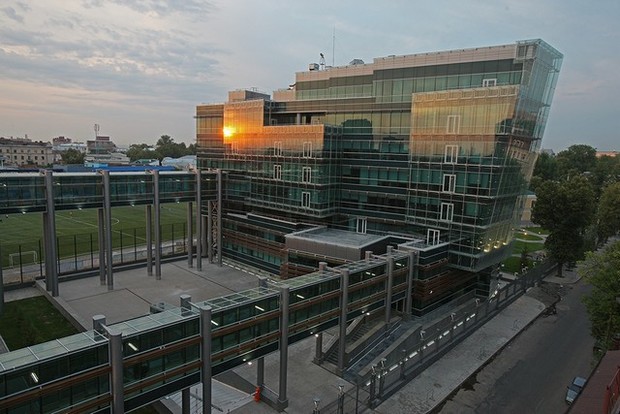
First of all, we should work on the effective development, for the good of our society, our people, including ourselves
What about the privatization process when the republic sold its 50,01%?
TAIF is a company that was created again in 1995 as a private and state partnership. Our major problem posed by shareholders was to attract investments to the economy of the republic as much as possible using market mechanisms. The first result of TAIF were successful: it's easier to make money from money with minimum risks. Nevertheless, the shareholders, as well as the government, assigned an uneasy task telling us to live here, go and work with the industrial enterprises of the republic. It's necessary to finance them using working capitals on the purchase of raw material and organization of sales. We had to reconcile to it. So, we started like the devil not realizing the scale of circulation of the problems. It turned out that we financed companies that were practically unmanageable bankrupts. Even the government had a blocking shareholding only. And we managed to borrow for them over $500 million of equity and loan funds. Then a crisis appeared in 1998. There was a default: our assets depreciated and net assets became negative. A pure bankrupt. The government decided to liberate itself from us and large enterprises that were in our debt from the fulfilment of the engagements and literally offered to file for bankruptcy. People looked at us and saw living corpses without pronouncing it aloud. No one could believe nor imagine that TAIF was able to survive. I think that a $500m debt doesn't require any explanation. We and I personally had not a choice but the slightest opportunity to stay alive and pay off the debts. We told it to the government, in answer to it, they said it's a waste of time. They offered to buy the shares up at market value and told to decide our fate on our own. In 1999-2000, the company become purely private. We are grateful to our partners and banks for their sincere and all possible help in our survival. Finally, we survived.
Is the information about shareholders still held in secret?
This question goes directly to the shareholders. We [as a company] work openly and according to the current legislation.
It surprises that you did not estimate the situation of Bashneft as a precedent in order to be prepared for the worst, just in case.
Our experts constantly analyze the legislation of the Russian Federation and the Republic of Tatarstan in force from the very creation of the company, especially when a new one appears. In addition, the Legal Department of the company analyzes all arbitrary and judicial practices that might refer to our sphere of work. Firstly, I trust them and I am convinced that we are always within the framework of the current legislation. But the most important thing is that our specialists and I think that Russia is headed by a real, mighty and respected leader who grasps the economy of Russia and corresponds to our great country. Vladimir Putin said that there would be no return to the past, including property redistribution, and that he would not allow to plunge the country into chaos again, which happened after the dissolution of the Soviet Union. It is known not only here but also worldwide that he doesn't renege on the promises. What is more, in our country everything is for the protection of our people, companies, including ours on the international markets. No one was interested in our work abroad before. Now we feel better. Today we feel the support of the country, and that we are not alone.
'Working up a sweat'
What results did TAIF achieve in 2014?
We had fewer problems or more in comparison with other companies. However, the results were good, we had one banner year again. The gross profit was approximately 600bn rubles. For instance, in 2000, it totaled 26bn rubles. We gained about 83 billion rubles and used them to pay obligatory taxes and duties to all levels of the budget. Only in comparison with 2005, the revenue increased sixfold and the paid taxes and duties – fivefold. We have borrowed 900bn rubles of credits and loans in all since 1996. Almost all credits have been paid back. In March, we paid off the last consignment, bonds of Kazanorgsintez, that made $100 million. By the end of the previous year, 35bn rubles weren't paid back. But we had over 40bn rubles deposit. The general balance of the Group is positive. Only from 1995 till 2014 we have invested 1,1 trillion rubles in the development of the country and our own development, paid taxes and salary using earned funds. By the way, this year TAIF celebrates its 25th anniversary. Kazan Scientific and Research Centre of Foreign Trade, our first organization, was created on 17 September. It was re-organized into TAIF PJSC on 11 August 1995.
Didn't the sale structure change as a result of the depreciation?
In Russia, the export and sales were divided about fifty-fifty. And this proportion was maintained. Moreover, we increase our production every year and launch new factories. Almost every year the production increases by 8-10%. It proves that the companies that consume our products grow at the same rate. It's a near economy of China. For instance, if in 2000 we produced roughly 400,000 tonnes of polymers, in 2014 we manufactured almost 2,5m tonnes. At the same time, import reduces. The market is huge: 3,5-4m tonnes of polymers are produced in Russia, and only 5m tonnes are consumed.
Was the sharp slump in the exchange rate a positive factor for TAIF?
It wasn't, of course. The sharp change of the rate, which had not been planned by the Ministry of Economic Development nor by ourselves respectively, caused many problems. But a part of the problems was solved owing to the fact that our revenue between domestic and foreign markets is halved.
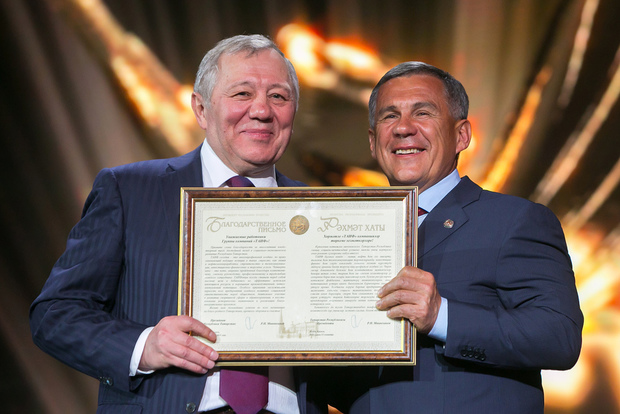
Only from 1995 till 2014 we have invested 1,1 trillion rubles in the development of the country and our own development, paid taxes and salary using earned funds. By the way, this year TAIF celebrates its 25th anniversary
What was the impact of the tax manoeuvre that gained money in your petroleum refining business in TAIF-NK?
It affected a lot. In comparison with last year's first quarter, and taking into account the oil-price slump, our expenses on raw material reached 5bn rubles. It demonstrates that 20bn rubles are expected for the period of a year. It's a colossal load. On the other side, the modernization, which is continuously held at TAIF-NK, helped us to increase a high-quality light oil production. Compared to the previous year, the first quarter was expected to bring only bare losses. But we were at an advantage of 1,5bn rubles. The sum was compensated due to the high-quality production ramp-up. According to our experts, today sour and extra-crude oil processing is the main problem in the factories, no one of them wasn't built nor designed to use it. Moreover, in Russia, oil price doesn't depend on its quality while in the whole world the main component of oil price is its quality. It's totally incomprehensible why more light crude oil is exported, whereas more heavy extra-crude oil remains in the country for self-consumption. On the contrary, if in Russia oil price was dependent on its quality, firstly, the refining sector would work giving a hundred per cent under market conditions. Secondly, the profitability of oil refining would be higher in comparison with the sale of light oil for export. Thirdly, and probably the most important, the ecological load on the environment significantly reduced. I suppose it may have a positive impact on the demographic situation. What is more, figuratively saying, oil refiners wouldn't be sitting on a powder keg because they work thinking about the burst of the unfitted for sour and extra-crude oil processing factory. By the way, we would suffer less from the tax manoeuvre that has started this year.
Do you support the idea expressed by Rosneft about the postponement of the transfer to the Euro-5 standard?
We didn't offer anything. We found new markets. We are going to sell to other markets in case there are no changes. If the terms change, we will sell. We have about 650,000 tonnes of RON 92 and RON 95. Rosneft is a large company that tremendously influences the economy of the country. If we remove our gasoline from the market, nothing will change. If they remove their 5m tonnes of gasoline and start to export it, the Russian market will have big problems. If the use of Euro-4 is forbidden, actually we thought about it, we will buy foreign gasoline until the launch of the Euro-5. Nevertheless, we a small company. If Rosneft follows this path, it will be a big problem for all of us.
How much do you still need to invest in the project?
The issues on financing TAIF-NK are over. The necessary sum is $650–700m, and we have it, the money had been earmarked. We also have many offers concerning the syndicate, individual credits from Russian and foreign banks. The total amount is from $500m to $1bn at 5,5-6% for 5-7 years. We aren't in a hurry, we are preparing for the next projects in Nizhnekamskneftekhim and Kazanorgsintez. We need to create a pure cash flow of about 70-80bn rubles for these projects separately. The experience demonstrates that it's better to solve all money matters at once. The money is needed till the very moment when the new key opens the doors of a factory. It is what we did, according to the project of TAIF-NK. And today we are ready to share interests with banks and save our own money for the next projects.
Do you always have strings for your bow?
As usual. Especially since 2008 [Vedomosti's Note: when the company had difficult negotiations with the creditors of one of the largest factors of the Group – Kazanorgsintez] we always prepare many strings. As you can see, the debt was 130bn rubles, so we paid it off. Whatever may happen tomorrow and we, our team and I, are disposed to it every day, but we are ready already. We just want to stay alive and save what had been created. It's good and comfortable when the government has plans because we can plan our work. But what happens usually is that yesterday it didn't exist and today it's already late.
How did last year's tariff increase on the export of petroleum products by rail by 13,4% influence you?
Bad. We didn't expect it. We worked up a sweat labouring 18 hours instead of 12 per day. We disengaged, but the financial indicators got worse.
How much do you still plan to invest in the increase of ethylene and polymer production in Nizhnekamskneftekhim and Kazanorgsintez?
They need roughly 500bn rubles. They should have 100bn rubles, we won't have problems then. What is more, all projects, we take part in, increase our revenue. For last 15 years, the situation is that every invested ruble gives 1,4-1,5 rubles of end goods.
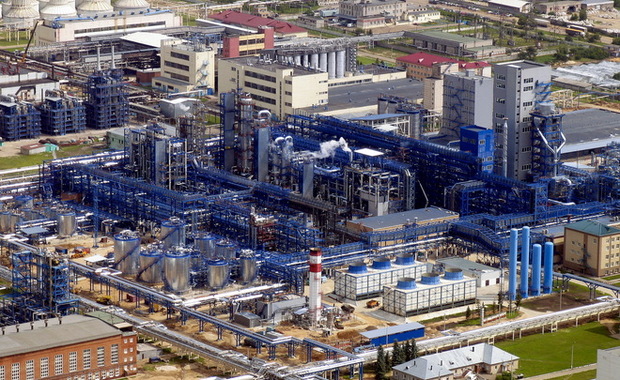
Russia never had nor have problems with the raw material for the oil refining and petrochemical industry. And it won't have them. The only problem is the organization of provision
Provided that there is sales market.
All projects have been calculated, so that always there will be a liquid market for them for the next 30 years. I don't talk about the Russian market only, I mean the global market. In Russia, polymer consumption constantly grows on the ground that its level per capita is less in comparison with developed countries. I don't see any problems. The sectors I named don't consume large volumes. The surpluses are exported.
Do you have enough raw material for the expansion in Nizhnekamskneftekhim and Kazanorgsintez? As far as we are concerned, you don't produce raw material.
Russia never had nor have problems with the raw material for the oil refining and petrochemical industry. And it won't have them. The only problem is the organization of provision. State authorities, oil-extracting companies of Russia, and, undoubtedly, petrochemists are interested in the solution of this problem. We convert every tonne of raw hydrocarbons into over 85% of polymers at 100,000 rubles per tonne. The calculation is simple: 50% of them are taxes and the other 50% are expenses of the enterprises on extraction, transport and processing of polymers, and the revenue of the companies participating in this chain. If we build a pipeline using 10 tonnes of raw hydrocarbons, the government will get 500bn rules in taxes and the companies earn over 550bn rubles. All in all the country gains additional incomes equal to 1 trillion rubles per year.
If your big rival Sibur starts the realization of Zapsibneftekhim and builds a pyrolysis in Tobolsk with a capacity of 1m tonnes, a great deal of raw material of Western Siberia will go there, not to Volga Region.
To start with, we are not rivals but partners. We work in different segments of our sector. As for their project, we talk about 5-6% of raw material extracted in Russia. This is why the launch of the project won't have an important impact. On the contrary, I think that there will be a slump in prices on both the world and Russian markets for everything we consume: natural gas, butane, isobutene, propane, etc.
Does it happen due to the fall in oil prices or the increase of extraction?
Not exactly, they are connected with the forecasts on sharp exacerbation of competitive battle for the deepest market of Europe and Eastern Asia led by petrochemical companies of the USA and the Persian Gulf, our biggest rival in the world markets. Even today raw gas prices in the US, including natural gas, ethane and other materials, are far lower than the gas bought by TAIF on the Russian market. Although literally 10 years ago raw gas prices were essentially higher compared to the Russian domestic prices. Our specialists suppose that the current geopolitical situation in the world is the main proof of the economic drive of American companies in the world market. A shining example of the economic foundation of the forecasts is the situation of LyondellBasel (USA) that recently was on the verge of bankruptcy being for sale at $2–3bn. And nowadays it generates over $6,5bn per year. In North America, new ethylene factories have being built since 2005, mainly using cheap ethane with additional capacity of up to 45m tonnes per year, including further ethylene processing with conversion into monomers and polymers. In the US, oil export is forbidden while the export of liquefied gas is not. This is why American companies get permission for construction of liquefaction factories and export terminals, even if it is difficult and complicated. In addition, a massive construction of tankers to transport liquefied gases, including propane, butane, ethane, isobutylene is carried out in order to export it later. So, we'll see these polymers, liquefied gases and ethylene on the markets of Europe and Eastern Asia literally within the next years. It is forecasted that in this situation raw material for petrochemistry will cheapen. We should study on a solid basis the work of these orientations in the countries of the Persian Gulf, in Texas and Louisiana, concerning shale gas, processing, and petrochemistry. We need to plan our work on the development of the company for the next 25-30 years, even though there is nothing good for us in this matter.
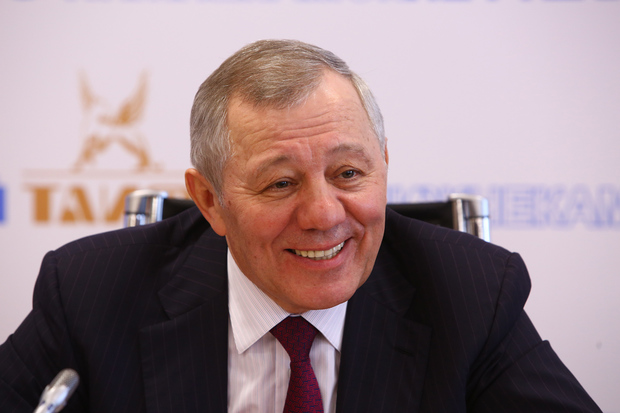
We experienced over five world and Russian crises. The most woeful part for us had been already discussed when we were going through. During the last 10 years, our development plans include risks of the constant unstable situation in the world
However, in Russia, there are not any prerequisites for the appearance of the cheap raw material yet. Fields in Western Siberia are running out, extraction in new regions is more expensive. What stimulus does Russia have in order to make the raw material cheaper except the world competition?
The situation is a bit different. This is another big topic for discussion. It is difficult to put it in a nutshell. Our experts think that it will lead to changes in the tax legislation with regard to the sphere of hydrocarbon extraction and its processing. There are no variants. Indubitably, it will bring forced acceleration of new technology development and its implementation. And the government compensates its losses in spades by means of additional taxes collected from the increase of the end production and its sale.
'To work and fight'
How are your negotiations with banks? Is it difficult to come to an agreement because of Ukrainian crisis and sanctions?
As usual, it is not easy to come to an agreement, but I do not see any problems.
Political and country risks.
It is up to them. You can lead horse to water, but you can't make it drink, to coin a phrase. It is far cheaper and more convenient when there is an opportunity to concentrate money. Sanctions present a problem for banks.
In your opinion, what is the term of the period of instability?
We experienced over five world and Russian crises. The most woeful part for us had been already discussed when we were going through. During the last 10 years, our development plans include risks of the constant unstable situation in the world.
Were you offered again to sell any factory after the story in 2008-2009, when there was a possibility to include Kazanorgsintez in the perimeter of Sibur?
There was no serious offer. Always there are those who wish to do it. It is a fairytale. No serious offers.
Now TAIF is a tasty morsel for those who want to purchase something: modernized assets and no debts.
We are not against it. There is work for all. We even say that there is a valuation of EY, Deloitte & Touche and PwC. Please take, buy, pay money. But what is important is that the programme is to be realized, and we are going to control it tightly. What is more, we are ready to channel all the money of the deal to the realization of the development programme at 3-4%, which we worked out for our client. If the programme isn't realized or the deadline is dragging, everything reverts to its original state with compensation of all the expenses on the deal, income deficiency from both active and unrealized in time enterprises. We have had no one who would like to do it (smiling).
I don't understand. Are you ready to invite investors in specific projects and separate businesses?
We need a consumer who would accept our investment programme. Today the task is to make Kazanorgsintez, Nizhnekamskneftekhim, TAIF-NK, TGC-16 not only reach the level of the world companies but also be better. We have work to do. The most important thing for us is people we are working with. Last year there was decided that all TAIF workers who need to improve their living conditions will be 100% provided with dwellings on preferential terms at the expense of our companies. These terms will work if a person labours well. What is more, the preferential terms might be improved, so that a part of his or her debts will be written off, and it depends on the results of the performance. So, they will have loans at 7-8% per year.
Do you let your young specialists go?
If one doesn't want to stay, it's impossible to make do it. If a person wishes and works well, he assumes responsibilities himself. If he or she works bad, there are no benefits. To day, we have 6,000 requests.
Are you going to raise the salary this year?
We do it every year, and it is not lower than the inflation rate.
Will you purchase anything outside Tatarstan?
We have many offers, but the answer is no.
Why not? Does your cash flow allow it? Your debt load is low, and people say one should buy when it's cheap.
One buys when it's profitable. Price is one the criteria of profitability. At present, we don't see such a deal. All money we find we invest in the development of our Group because neither our experts nor we see another more profitable business. There many offers, though.
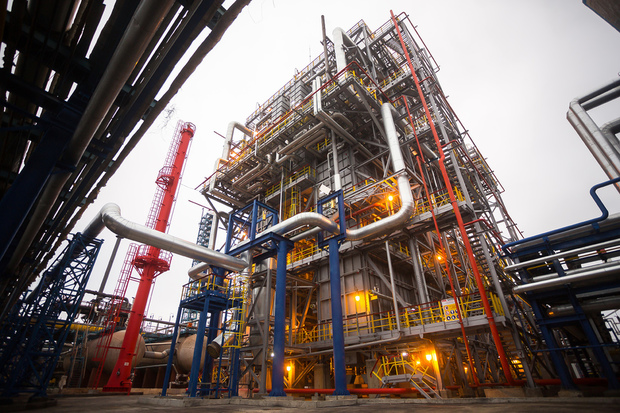
All money we find we invest in the development of our Group because neither our experts nor we see another more profitable business
Could you assess the price of TAIF?
It's priceless (smiling). There are special internationally renowned companies that deal with assessment. During 1,5-2 years, the evaluation wasn't carried out. The last assessment was held on 1 January 2013, the sum was equal to $18bn. In my opinion, now we are stronger and more powerful. At that moment, we had many loans. In 2014, TAIF finished elaboration of its development programme till 2025, and this year we have started its realization. And this is another price.
Is it a development programme of the company or is it a development programme of the republic?
Our experts opine that it is a part of the development programme of our country, and I agree with them. You may think we are altruists, but it's not quite true. We have such large-scale programmes in which altruists would feel out of their depth. Although partially we have some altruistic features. I cannot understand how it's possible to be alone among the rich or among the poor. We aspire to see that people are in need of nothing, they are happy and fine, and it will be true. Because Russia is the richest country. We need to work and fight. One day you will live in Russia that will be better than the US or England. We perhaps will see this time too, but we are not young. Our main task is to sensibly perform the replacement for head managers of the company, we already have young specialists. In the factories, this process is almost over. Practically all factory directors are on the right side of 45. Now we prepare to do the same in TAIF. It should happen in our presence. It will be such a leap. What the young is growing! What is more, in Tatarstan this experience has been already applied.
Are you preparing your successor?
I prepare specialists who will continue the work. It is the most important thing. We are not physically strong as much as we would like to be, but the young is. Our experience is a stair they need to occupy as a working encyclopedia for a start. As for the rest, they have it.
What is the difference between young managers and you when you started Kazan SRCFT 25 years ago?
I'm convinced that the most important part is the young that we have today is far better than we were. They see more up-to-date, technological and prospective things: cars, buildings, a way of life that seem to be simple articles. But it's what we didn't see. They have the same education, which is even better. The young of today has an opportunity to study everything. In conclusion, it all will convert into economically effective moments, with their advent our company will accelerate its development.
'Who wrings more'
TAIF finances FC Rubin, a repeated champion of Russia. Are you a football fan?
I always ask myself whether I support football players or our money. They won the Russian Premier League championship in 2008 and 2009 and the 2011-2012 Russian Cup and reached the quarter-final of the UEFA Cup. On the credit side, they have wins over Barcelona, Inter and Chelsea. These recollections are pleasant not only for me. But, at this moment, they have an alternation of generations and a new coach. This year they took the 5th place. I suppose that 'Rubin' is worthy of its fans' support.
Is it an expensive club?
This question goes to them. We finance about one-third of its expenses.
Are you afraid of the possibility that the World Cup will be cancelled due to the FIFA scandal? Moreover, several games are to take place in Kazan.
We wouldn't like it to happen. If Russia suffers, we suffer too. If Russia feels good, we feel good as well. Nowadays someone probably wants to create legends about Russia that are not peculiar to our authority and country. I see how we meet a lot with our European partners, people from Eastern Asia and Americans, they are all positive. Sport is not politics. Another example is the Universiade (Student Games) and the Olympic Games that we organized at the highest level.
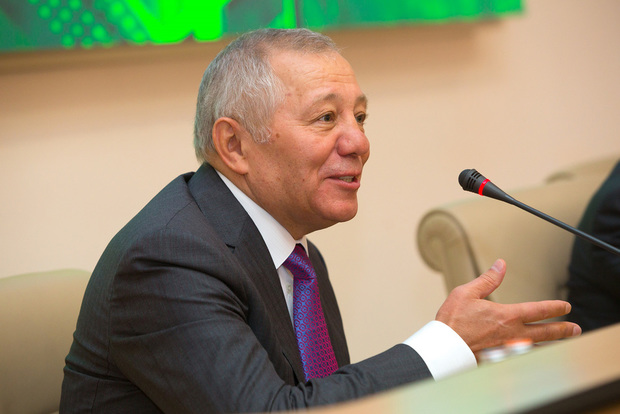
99% of this fuss is a competitive battle that existed, exists, and will exist. Any approaches are applied. In this matter, the winner is who has the truth and the strength. I think that our country has the truth.
The explanation is that tempers are running high as regards not only football but also, in general, relationships between Russia and the West. Statements expressed both Russian and western persons are extremely strained, and it can have a negative impact on business.
99% of this fuss is a competitive battle that existed, exists, and will exist. Any approaches are applied. In this matter, the winner is who has the truth and the strength. I think that our country has the truth. Iraq, Libya, Egypt and Yugoslavia were smashed. The peoples from these countries live even worse than before. In addition, the situation in Ukraine is a horror! This euphoria and 'Goebbel's agitation' will terminate. What about the consequences? They all think that a goody will come and arrange everything. No one will never come. The history of the human development shows that only we are able to help ourselves. Good needs protection.